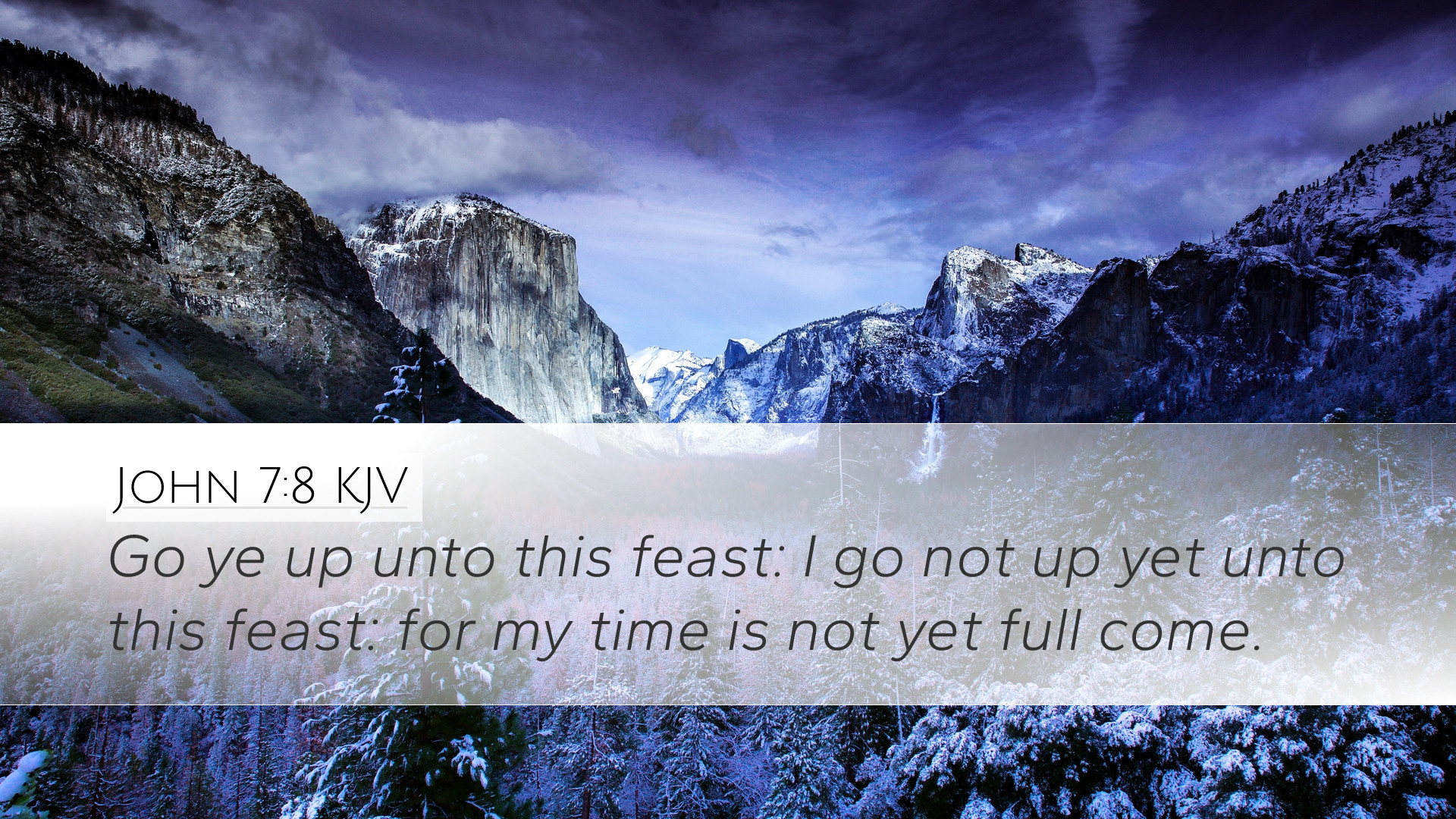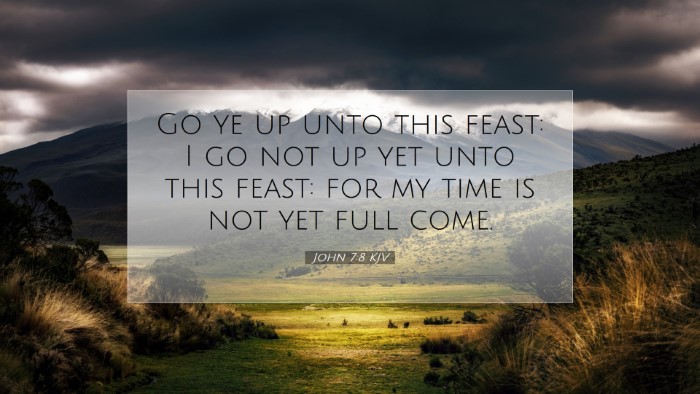Commentary on John 7:8
Verse Reference: John 7:8: "Go ye up unto this feast: I go not up yet unto this feast; for my time is not yet full come."
Contextual Overview
In the Gospel of John, the seventh chapter depicts a critical period of Jesus’ ministry, where He is presented before the backdrop of the Feast of Tabernacles. This festival, one of the major Jewish feasts, symbolizes God’s provision and protection during the Israelites' wilderness wanderings. Understanding this context is essential as it lays the groundwork for comprehending Jesus’ reluctance to attend the feast at this moment.
Insights from Public Domain Commentaries
Matthew Henry's Commentary
Henry emphasizes the importance of divine timing in our lives. Jesus’ response highlights His awareness of God’s schedule for His ministry. “For my time is not yet full come” reflects His submission to God’s sovereign plan. Henry notes that Christ’s reluctance is not rooted in fear, as His brothers suggested, but in self-governance under Father’s divine purpose. This signals that His mission extends beyond mere participation in religious observance.
Albert Barnes' Notes on the Bible
Barnes discusses the implications of Jesus' decision, highlighting the concept of “timeliness” in God’s purposes. He clarifies that Jesus was not denying His role in the celebration of the feast but rather affirming that His presence at this moment was not predestined. "My time is not yet come" serves as a reminder to believers that all things are orchestrated by God’s divine plan. His absence serves a greater purpose; it sets the stage for His ultimate revelation and the corresponding reaction of the crowds, which will soon unfold in the narrative.
Adam Clarke's Commentary
Clarke provides a rich theological perspective on this verse, detailing the tension between Jesus and His brethren. He remarks that the brothers displayed a misunderstanding of Jesus’ messianic mission, pushing Him to seek public acclaim. “Go ye up unto the feast” can also express a dichotomy of mission: while His brothers pursue popular approval, Jesus embodies a more profound calling that requires patience and divine direction. Clarke suggests that true discipleship involves discerning God’s will and timing, implying that a hasty move could derail the divine plan.
Spiritual and Theological Reflections
This verse invites believers to reflect on the theme of divine timing. Many Christians today wrestle with waiting periods in their life journey, akin to Jesus’ deferred attendance at the feast. It becomes apparent that waiting does not signify inactivity but rather a period of preparation. Discerning the right moment can involve trials, growth, and a deepening faith as we learn to trust in God’s plan.
The verse serves as a powerful reminder that God’s purpose unfolds within a framework of His timing — a lesson that resonates deeply within pastoral and theological studies. This truth can bolster faith during uncertain times and inspire believers to remain steadfast, learning to navigate life’s seasons with wisdom and patience.
Practical Application for Pastors and Students
-
Emphasize God’s Sovereignty: Encourage congregants to acknowledge God’s overarching control over their circumstances and encourage reliance on His timing.
-
Teach Patience in Discipleship: Use this scripture to highlight the importance of waiting on God, fostering a culture of reverence for divine timing in your church community.
-
Modelfulness: As leaders, exhibit waiting on God’s direction in personal and ministerial decisions, illustrating integrity in aligning actions with divine timing.
Conclusion
John 7:8 encapsulates critical themes of divine timing, misunderstanding, and the nature of Jesus’s mission. Reflecting on the thoughts of respected theologians such as Matthew Henry, Albert Barnes, and Adam Clarke enriches our understanding of this passage. This insight encourages believers to consider the broader narrative of Christ’s journey and how their own personal stories might intersect with divine timelines. This can lead to profound growth in faith and practice as they strive for alignment with God’s perfect will.


